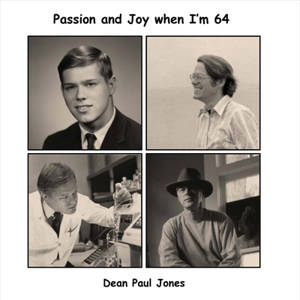
- Retrait gratuit dans votre magasin Club
- 7.000.000 titres dans notre catalogue
- Payer en toute sécurité
- Toujours un magasin près de chez vous
- Retrait gratuit dans votre magasin Club
- 7.000.000 titres dans notre catalogue
- Payer en toute sécurité
- Toujours un magasin près de chez vous
Description
This autobiographical sketch by Dean Jones, Professor of Medicine and Biochemistry at Emory University School of Medicine in Atlanta, USA, was prepared in celebration of his 64th birthday. The book chronicles life as a child of the cold war, a student of the Vietnam War and an adult with the blessings and challenges of family life and science. The book is organized into four parts highlighting 32 original poems, 32 of his favorite personal photographs, 32 of his original scientific papers, and 32 original oil paintings. Accompanying notes provide context and motivation. In Part 1, "An Egg is a Gamble Encased in a Shell", he shares poems written as an inconsistent diary of youth and young adulthood. These reveal strong influences of contemporary events of the cold war, civil rights and the Vietnam War on development of philosophy of life. His father taught him, "If you cannot see both sides of an argument, you are wearing blinders." He was functionally blind until 10 years old; healthcare was not universal, and there was no routine vision testing in small town America in the 1950's. These early years had lifelong impact, for better or worse. Part 2, "Life's Reflection is a View of Views", presents a selection of special people, places and events that he captured through the lens of his camera. These symbolize the joys of adult life and reflect passage from student to professor and naturalist to scientist. They also reflect transition from grandson to son to father to grandfather. Family maintained central stage, but central stage was never far from science; interspersed are philosophical milestones in single-frame cinematography: peace is unexpected, beauty is timeless, love is eternal, life is fleeting. Part 3, "Beauty is Truth, Truth Beauty," summarizes 32 of his favorite scientific papers from more than 450 scientific publications. The selection reflects the teaching of his mentor, Professor Howard S Mason: "You make your greatest contribution by asking fundamental questions which others are not pursuing." He describes the need to be a bulldozer, clearing paths and filling holes in the scientific landscape. As his research prospered in studies of redox biology and the molecular logic of life, he recalls a nightmare concerning oxidative stress research that led to an explosive development of high-throughput chemical profiling for precision medicine and exposome research. He provides insight into the interdependence of students, mentors and colleagues, and the rewards and benefits of trust and collaboration. In his final section on Art, "Life is an Unfinished Portrait", he speaks to the joy of discovery beyond that in poems, photos and science. In 32 Paintings, he shows his progression from an untrained middle-aged beginner in oils. He studied the subjects of O'Keefe, the brush strokes of Monet, the colors of Van Gogh. Through trial and error, he achieved Matisse's definition of fine art, "something nice to hang on the wall." In his notes, he conveys the joy of transforming a blank canvas into a loving memory, as well as the intimidation of plein air painting, exposing one's level of competence to complete strangers, to better capture impressions of nature. Together, the collection tells a story of fulfillment of a scientist, husband, father and grandfather, as well as academician, poet, photographer and artist. This is a story of passion and joy.
Spécifications
Parties prenantes
- Auteur(s) :
- Editeur:
Contenu
- Nombre de pages :
- 286
- Langue:
- Anglais
Caractéristiques
- EAN:
- 9781682221761
- Date de parution :
- 24-09-15
- Format:
- Livre relié
- Format numérique:
- Genaaid
- Dimensions :
- 218 mm x 218 mm
- Poids :
- 975 g







